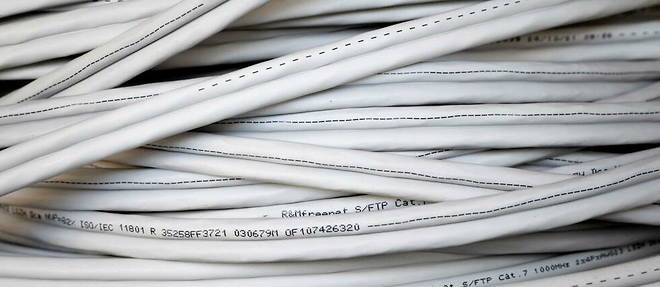BackBone Link cut near Aix en Provence
On 18 October 2022, a backbone link carrying the Internet from the north to the south of France was physically cut near the town of Aix-en-Provence.
According to the elements of the investigation reported by the police, this was an act of vandalism in which the criminals only had to lift a protective cover. After gaining access to the cables, the criminals cut them, thus destroying the backbone segment coming from Lyon, which is used to link the submarine cables in the Atlantic to the submarine cables that run from the Mediterranean to the sides of the Indian and Pacific Oceans. For the time being, no drop in internet throughput has been reported by Interxion, the region's data centre operator, which claims that the sabotage had no internet-wide consequences.
The original information was made public on 20 October by a US company called Zscaler, which provides secure cloud access platforms. According to network tests carried out by this company following the incident, the outage would affect the delivery of Internet via submarine cables that leave the port of Marseille to serve Africa, the Middle East and Asia. Indeed, they suggest that some parts of the network are experiencing packet losses. Although the actual impact is minor, Zscaler warns that this could cause latency in users' internet requests. Zscaler also suggests, after testing, other possible degradations on two other backbone links, the one from Madrid that serves as a relay for other cables crossing the Atlantic and the one to Milan that serves South East Europe; although this has not yet been confirmed by investigators.
At the same time, there has been confusion between several incidents in the media, as another cable damage has been reported in Great Britain. A link between the Shetland Islands and Scotland was severed on 20 October, completely cutting off the islands' telecommunications links. Although these incidents occurred at the same time, at the moment there is every reason to believe that they are completely uncorrelated.
The impact of the cable cuts has therefore had a minor impact on the French telecoms network and its intercontinental dependencies, as the data rate has not decreased and the cables are being replaced. However, this is not an isolated incident, as cables of the same type were also vandalised earlier in May 2020 in the Paris region. As a result, a massive blackout affected the Ile-de-France region. Free and Orange were among those affected, but so was Scaleway (Iliad), whose boss explained that at least four operators in all had been affected by the outage. Extremist anti-5g activists have been suspected of acts of vandalism since 2019 and it has been assumed that some of these acts of destruction could be their doing.
More organised and simultaneous sabotage could have almost similar consequences to the Shetland incident. However, such an operation requires a certain professionalism, site reconnaissance and a thorough knowledge of the French telecommunications wire network. These skills are rarely within the reach of ordinary vandals or activists, and no private contractor seeking retribution for payment problems would risk such large-scale attacks.
Read more about it : here
